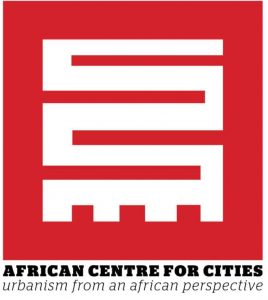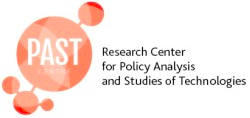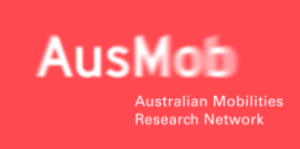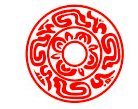This page lists mobilities research centres, networks, nodes, individuals who are happy to be a bridge for mobilities researchers. You do not have to be a ‘centre’ to be on this list. The qualifying criterion is ‘mobilities research is being done here’. If you are doing mobilities research and would like to be part of the Global Mobilities Network, please join.
In alphabetical order:
 |
Academy of Mobility Humanities, Konkuk University, South Korea
AMH is a newly established research institute hosted at Konkuk University, South Korea. AMH is one of the only research hubs in the Asia-Pacific region that is specifically dedicated to the study of mobilities from a humanistic perspective. Our research covers a wide range of topics including postcolonialism, literature, geography, technology, migration, multiculturalism, culture, space and media. In short, we are interested in the study of movement, people, technologies, space and ideas. AMH also hosts an open access journal, the International Journal of Diaspora and Cultural Criticism which is free to download. We’re in the process of setting up our social media and English webpages. We’ll update this information as soon as possible. Keywords: mobility humanities, humanities, technology |
|
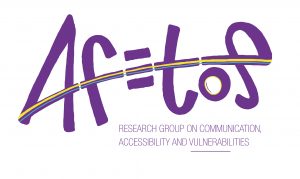 |
Afetos: Research Group on Communication, Accessibility and Vulnerabilities
Afetos is a research group created in the In the beginning of the year 2017 in the Federal University of Minas Gerais (UFMG) in order to aggregate the discussions and studies around the relationships between communication, accessibility and vulnerabilities. Sustained by the epistemological framework proposed by the Mobilities Paradigm and the Affect Theory, we developed a project called “I Exist and Move: experiences and mobilities of people with disabilities”. We are interested in the development of a theoretical-conceptual reflection capable of embracing the multiple communicational aspects that challenge subjects in the constitution of their subjectivities, as autonomous political subjects, and in their relations with technologies as socially constructed ways of providing conditions of equity in the world. At the same time, our desire also comes from an ethical conviction about research and projects that can touch and sensitize society to the importance of a science that believes in more hospitable and less unequal worlds. Therefore, beyond the theoretical discussions, we also turn to aspects that can involve students in teaching activities with a view to promoting citizen education and awareness about the fact that people with disabilities and in other situations of vulnerability can be part of the publics and the professional field for which they are being trained. Keywords: Brazil, community, accessibility, vulnerabilities Twitter: @grupoafetos |
|
|
|
African Centre for Cities,
|
|
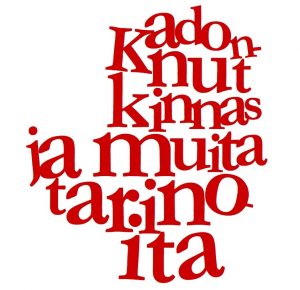 |
From August 1, 2018- July 31, 2020, funded by the Kone Foundation. The project is based on Karelian Institute, University of Eastern Finland.
The project combines research and arts-based methods in studying mobile people in the Finnish context. The project analysis narrative knowledge about objects that people carry with them across various territorial and symbolic borders. The aim of the project is to increase understanding about border crossings, cultural citizenship, new neighbourhoods, mobile traditions, and identities.
Website and more information about the research group: www.uef.fi/kadonnut-kinnas (pages are currently in Finnish only, but they will be translated)
Keywords: Finnish, borders, art, mobile
|
|
|
|
Research Centre for Policy Analysis and Studies of Technologies, Eurasia, Volgograd State University, Russia |
|
|
|
AusMob, Oceania, Australia
|
|
|
|
CeMoRe, Lancaster, Europe, UK Cemore is a dynamic and experimental research centre at Lancaster University. We combine leading social theory with grounded, policy-oriented empirical research and innovation. In our work with partners in diverse organisations, we develop ideas and approaches to making mobile life sustainable into the long-term. Keywords: mobilities paradigm, theories, mobile methods, tourism, digital mobilities, migration |
|
 |
The Center for Mobilities Research and Policy The Center for Mobilities Research and Policy is a nexus for innovative collaborations that examine global issues from the interaction of mobile technology and public space to the future of sustainable transport. Drexel University’s mCenter promotes new theoretical approaches, new methods and the academic leadership to research, envision and foster alternative mobility futures based on innovative collaborations between the arts and social sciences, participatory engineering, business, media and design, and public health. Keywords: Policy, Mobilities, Sustainability, Futures |
|
| Centre for Transport Studies | Centre for Transport Studies
The CTS is one of the world’s leading multi-disciplinary transport centres and is an integral part of UCL’s Transport Institute. The Centre includes several specialist research groups within UCL Civil, Environmental and Geomatic Engineering. We are also working closely with academic and industrial partners at both national and international levels to deliver world-leading research. Prof Peter Jones is the current Director of CTS and is supported by four professors who each lead on a major research theme in the centre: Cities and Mobilities – Prof. Nick Tyler Visit the CTS IRIS page for more information. |
|
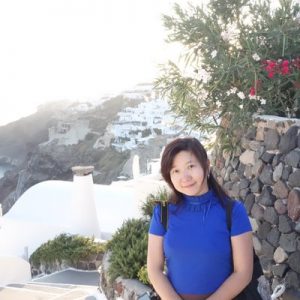 |
Chia-Ling Lai, Asia,Taiwan Keywords: tourism, culture, Biography: sociologist on materialities and mobilities, museum and exhibition culture, gender and experiment art. Art addict, world traveller, futurist. |
|
 |
C-MUS, Aalborg, Europe, Denmark
C-MUS is a cross-disciplinary and cross-faculty research center at Aalborg University. We reach across communication studies, tourism, planning, geography, sociology, architecture and urban design. In C-MUS the contribution to keep developing theories and concepts under the ‘mobilities turn’ is a key activity. Next hereto is the constant exploration of new methods within Mobilities research. These range from experimentations with digital technologies to art and design interventions, whilst still maintaining ‘classic’ ethnographic approaches to empirical mobilities research. C-MUS has as its mission statement to collaborate and make outreach to as many, and as diverse, external societal partners as possible (e.g. NGOs, Authorities, Municipalities, Communities, and Businesses) in order to contribute constructively to solving societal challenges. |
|
|
|
Research Center for the Americas (formerly the Chicano Latino Research Center) , Americas, UC Santa Cruz, USA We are especially interested in questions related to citizenship, class, economics, education, embodiment, everyday cultures, genders, identities, indigeneity, labor, language, nation, place, policy, politics, race, representation, sexualities, social movements, the state, and statelessness. CLRC supports research in Latin American, Latino, and migration studies. Our goal is to promote inquiry, foster dialogue, develop knowledge, and inform public debate on the movement of people, ideas, and goods in and beyond the Americas. We are especially interested in putting Latino and Latin American studies in dialogue with border and migration studies on a global scale. Keywords: migration, labor, precarity, citizenship, denizenship |
|
|
|
Cosmobilities, Europe |
|
|
|
Cultural Mobilities Research (CuMoRe), Leuven, Belgium Human mobility involves a complex assemblage of movement, social imaginaries, and experience. The main purpose of the anthropological research conducted at CuMoRe is to disentangle the various elements composing this assemblage, in various contexts around the globe, with the aim of becoming an internationally recognized point of reference for researchers, policy makers and civil society. CuMoRe played a leading role in the creation of the EASA’s Anthropology and Mobility Network (AnthroMob) and its transdisciplinary book series, entitled Worlds in Motion. CuMoRe sponsored and logistically supported AnthroMob’s first international workshop on methodologies of mobility, held at the University of Oxford’s Centre on Migration, Policy and Society (COMPAS) in 2013. Apart from academic publications and conference panels and presentations, CuMoRe researchers are increasingly active in civil society activities and in collaborative projects with artists. CuMoRe attracts scholars from across the globe who want to spend some time in Leuven to benefit from the vibrant intellectual environment.
Keywords: anthropology of mobility; travel; tourism; migration; heritage; imaginaries; culture
|
|
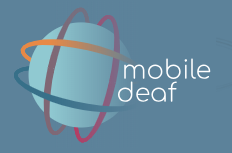 |
MobileDeaf (Deaf mobilities across international borders: Visualising intersectionality and translanguaging)
There are two main research questions in the project. First, within contexts of international deaf spaces, how does being deaf intersect with ethnicity, nationality, education, religion and gender, and which meaningful connections or accumulated inequalities occur? Second, how do deaf signers in these contexts practice and experience translanguaging, by making strategical use of multiple languages and language modalities, and International Sign? Four subprojects focus on structurally different kinds of international deaf mobilities: (1) forced migration, (2) labour migration, (3) professional mobility, and (4) tourist mobility. Four ethnographic are produced in the frame of the project. |
|
‘On the Move: People, Objects, Signs’ at the University of Salzburg |
Doctorate School ‘On the Move: People, Objects, Signs’ at the University of Salzburg, Austria
The doctorate school “On the move: people, objects, signs” investigates the interplay of moving people, objects, practices, and signs in connection with old and new immobilities, infrastructures, technical networks, and forms of social organisation. It is designed for interdisciplinary research to better account for the increasing social complexity caused by transformation processes. The theoretical aim is to explain consequences of this transformation. The projects in this doctorate school analyse processes and phenomena in the context of the mobility of persons (tourism, voluntary and forced migration, sport, transportation, labour), objects (things, resources, commodities), and signs (discourse, art, knowledge and information, identity). Keywords: people, objects, signs, infrastructures, immobilities, technical networks, social organisation, tourism, migration, sport, transportation, labour, identity, commodities, discourse, art, knowledge, information,
|
|
 |
Future Making Space, Aarhus University This network of researchers brings together people from industry and academia to explore how we’re building possible futures through our everyday activities of talking, researching, curating, writing, and teaching. These ‘methods’ we use to make sense of our world also shape our future, for ill or good. How can we intervene in this process, to build more sustainable, ethically sensible futures? What do we want to become? Projects and meetings within this network strive to connect practices of inquiry with larger social structures of knowledge and action. Keywords: future, sustainability, |
|
|
|
Hawke EU Centre for Mobilities, Migrations and Cultural Transformations, Oceania, Australia |
|
| Honggang Xu and Kevin Hannam, Asia, China Keywords: Honggang Xu: individual, lifestyle mobilities, Kevin Hannam: tourism, education |
||
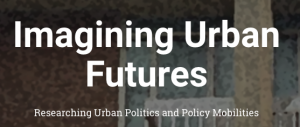 |
Imagining Urban Futures
The IUF collective are interested in the relationship between mobile models and urban politics. Or to use another phrase, urban policy mobilities. We have enaged in a variety of research projects and written widely on the topic. We have considered the important questions such as: How and why do individuals and groups learn from elsewhere? Keywords: territorial, mobilities, urban, politics
|
|
 |
Laboratory of Urban Sociology, Lausanne, Europe, Switzerland Under the direction of Prof. Vincent Kaufmann, Laboratory of Urban Sociology (LaSUR) comprises of around fifteen researchers and PhD students united towards the comprehension of urban experiences within a social science perspective. Situated within the EPFL and the ENAC Faculty (Architecture, Civil and Environmental Engineering), the LaSUR researches the social conditions that produce and appropriate cities or territories, collaborating intensively with its partners in engineering and architecture.
The LaSUR confronts urban phenomena through the mobility capacities of its actors. In this perspective, the principal research themes are daily mobility, residential history, the dynamics of suburbanization and gentrification, public space, and network management. Keywords: cities, public space, network management, urban
|
|
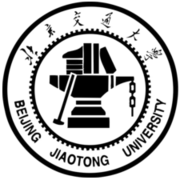 |
Dr Malé Lujan Escalante, Lancaster Institute for the Contemporary Arts, LICA Imagination Lancaster / Centre for Mobilities Research (CeMore) Lancaster University, International Lecturer in Design, Beijing Jiaotong University, “I teach Introduction to Design and Modernism in the Arts and Design, in Weihai Campus, China. Where I live 20 weeks a year.My research explores cultural implications of digital-physical interactions through participatory and creative methods.I believe in the impact of cross-disciplinary and cross-sector collaborations. I specialize in facilitating creative workshops that foster knowledge exchange in imaginative ways.I am currelty working in projects that explore ethical dimensions of ICT innovation as creative process.I am interested in explore design research a way of “doing” theories and thinking “in” methods.I like to play, I like mementos and magic tokens, I like feminist ontologies, I like bikes, I am into posthumanism and out of rules.”Keywords: mobilities, design, ethics, Beijing |
|
| The Marshrutka Project | The Marshrutka Project: Fluid mobilities for cities in transformation: spatial dynamics of marshrutkas in Central Asia and the Caucasus Minibuses locally known as marshrutkas are a common sight in urban and rural landscapes of Central Asia and the Caucasus. The Marshrutka project deals with the role of the marshrutka mobility phenomenon in the production of post-Soviet urban spaces, in and beyond Central Asia and the Caucasus. It provides an empirically founded contribution to the larger discussion on post-Soviet transformation, and fosters a still under-represented view on post-Soviet transformation, highlighting – through the lens of the marshrutka phenomenon – the bottom-up and everyday emergence of new orders in the fields of economy, morale, urban development and migration. The project takes the shape of a structured PhD programme, which includes five PhD students and one Post‐doctoral fellow. Their complementary projects analyse the bottom‐up emergence of new orders through the lens of the marshrutka mobility phenomenon. |
|
 |
mCenter Centre for Mobilities and Policy, Drexel University, , Americas, Philadelphia, USA Keywords: policy |
|
| MENA Tourism Net | MENA Tourism Net is an email list/network to help foster communications and collaboration between scholars of tourism and travel in the Middle East and North Africa from any discipline.
|
|
 |
miGroup was formed in 2015 by researchers focused on widening gaps in literature, knowledge, policy and practice(s) that arise from uncritical thinking within education and are explained mainly by 20th century unquestioned assumptions. Blind spots within education are starkly evident when 21st century demographic realities connected to migration, mobilities and internationalization are examined in a critical light. This is especially clear with respect to Finland’s historical legacy of inclusion, access, social mobility and equality experienced across the general population. miGroup’s research, teaching, and engagement is aimed squarely at the complexities of demographic challenges within society currently outpacing educator’s awareness and understanding of who is included in Finland’s education system – and who is not. Keywords: Finland, internationalization, social mobility, inclusion, equality, demographic challenges, education systems, |
|
| Mobile Lives Forum, Europe, Paris, France Keywords: transitions |
||
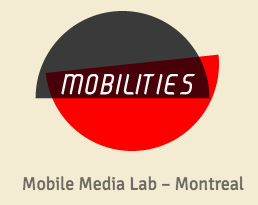 |
Mobile Media Lab, Americas, Montreal, Canada
|
|
 |
Mobilities Network for Aotearoa New Zealand, Oceania, New Zealand Keywords: risk |
|
 |
Network for Research into Chinese Education Mobilities A research community for sharing of research ideas and events related to Chinese education mobilities. We understand ‘Chinese’ and ‘education mobilities’ in a broad sense. Keywords: China, Chinese Education |
|
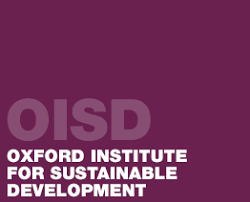 |
The Oxford Institute for Sustainable Development (OISD), founded in 2004, is one of the UK’s largest research institutes dedicated to sustainable development research in the built and natural environments. OISD, which consists of eight distinct research groups, addresses the multiple dimensions of sustainable development and the synergies and processes that link them, through a multi- and inter-disciplinary approach. OISD is contributing to major Research Council programmes such as Living with Environmental Change, Energy research, Sustainable Urban Environments and Lifelong Health and Wellbeing, through various research grants. |
|
|
Pan American Mobilities Network, Americas
|
||
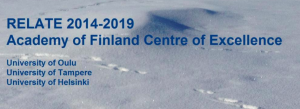 |
RELATE Centre of Excellence The Relational and Territorial Politics of Bordering, Identities and TransnationalizationUniversity of Oulu, University of Tampere and University of Helsinki”CoE’s primary objective is to investigate and conceptualize the simultaneous, “chiasmatic” existence of “territorial” and “relational” processes. We argue that what has been neglected in research is how the two are constituted by and constitutive of “boundedness” and borders, and how we should understand borders under such conditions: how does the process of (re-)bordering occur and becomes materialized in the institutionalization of territorial and relational/ supraterritorial spatial configurations. The constitutive powers of borders and identities have become increasingly complex and multi-scalar and it is therefore crucial to move beyond the territorial/relational dichotomy to make sense of this complexity. Through both drawing from and developing further recent socio-spatial theorizing on borders, our central goal is to contribute to the pivotal social scientific issues of contemporary world: globalization, global governance and the transformation of borders.” |
|
 |
Reproductive Mobilities Network, Canada
Interdisciplinary scholars working on any area related to the intersection of mobilities (theoretical, empirical, physical, affective, multi-scalar, tourism, migration, asylum, exile, evacuation, etc) and human reproduction (ARTs, abortion, conception, childbirth, surrogacy, donor, etc). Keywords: reproductive mobilities; reproductive politics; stratified reproduction; cross border reproductive practices; ethnographies of reproductive mobilities |
|
| Space, Place, Mobility and Urban Studies, Roskilde University |
Space, Place, Mobility and Urban Studies (also called MOSPUS) Our research unit investigates the spatial reorganisation of society. We investigate relations between everyday life, culture, settlement and industries. New forms of mobility, social exclusion, intercultural relations, new technologies and creative industries demand new approaches in theory and in practice.
|
|
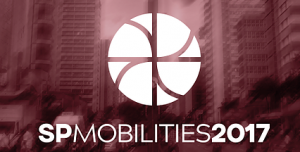 |
SP Mobilities, Americas, Sao Paulo, Brazil | |
 |
Sustainable Mobilities, Nürtingen-Geislingen, Europe, Germany The mobility world is rapidly changing. Mobility will be sustainable, networked, digital and shared in the future. We will be connected better and sharing cars, bikes and rides much more than today.
Sustainable mobility concepts, services and products need highly qualified, innovative and creative experts. Sustainable mobilities need people ready to connect: ideas, transport modes, disciplines – and first and foremost: people. You want to know how livable cities and regions work? This is the right program for you. You want to know how post-carbon, electric and sustainable mobility is possible? Work with us! Keywords: sustainability |
|
 |
T²M
T²M is an association of scholars, practitioners and concerned citizens who seek to encourage and promote historically informed understanding of transport, traffic and mobility. The history of transport and mobility includes the interactions between people, material objects, infrastructures, representations, and embodied experiences. The association invites participation by anyone sharing an interest in its activities.
|
|
| Transportation Group, Southampton
Head of Group: John Preston
|
||
 |
Transport Studies Unit, University of Oxford
The Transport Studies Unit (TSU) advances interdisciplinary approaches to the study of transport, with particular emphasis on its social, economic and environmental implications over time and space. Ranging in geographic scale from the local to the global, the TSU’s research is strongly focused on mobility within and between cities and urban areas. The TSU is based within the School of Geography and the Environment, University of Oxford. It has since 1973 established an international research reputation in the fields of transport policy analysis, the development of new methodologies and behavioural studies. Keywords: Transport, mobility, economic, environment, psychology, political science, public health research
|
|
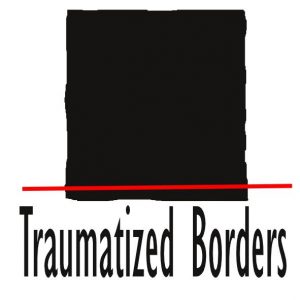 |
The project is Funded by the Academy of Finland (September 1, 2016 – August 31, 2020). The project is based on Karelian Institute, University of Eastern Finland.
Summary:
Traumatized Borders is a multidisciplinary research project which investigates oral and written trauma narratives related to various topographic and symbolic borders in Russian, Finnish, Estonian, Ukrainian, and North-American contexts. In the project, traumas are understood as universal, but yet culturally bound narratives and linguistic constructions. Borders, on the other hand, are understood as political and cultural constructions that create traumas and determines the meaning and significance of border related trauma narratives. Geopolitically, the project focuses on the contemporary EU-Russian border, former Soviet internal borders, and the historical Soviet Union border with the West, whose influence reaches even the North-American context. The study covers time period between the 1920s to the present day including some of the most significant historical events that have defined Russia’s and its neighbors’ topographic and symbolic borders.
The project applies methods provided by cultural studies, folklore research, cultural anthropology, literature research and linguistics.
Keywords: Borders, trauma, Finland, Russia, Estonia, Ukraine, North-America, geopolitical, anthropology, literature, linguistics
|
|
 |
Travel Wayfinding, Cardiff The definition of Wayfinding that I published in the academic journal Symonds et al (2017). Exploring an Absent Presence: Wayfinding as an Embodied Sociocultural Experience is:
Indeed, getting lost can be a very stressful occurrence and the funny thing is that it can happen in the smallest of places, such as trying to find the toilets (restrooms) in a pub or bar, or in a large space such as in a hospital, airport, tourist attraction or sports stadium. You can read on “what is wayfinding” here. For business owners, the cost of having users get lost and frustrated, irritated and stressed, can result in the wayfinding and overall user-experience being seen as a negative experience. This can result in users trying to avoid your location in the future. The good news is that there is plenty you can do to improve the wayfinding at your location. We offer training courses that you can do directly online and also act as a wayfinding consultancy.
|
|
For any updates to your centre or network, please message cemore@lancaster.ac.uk

